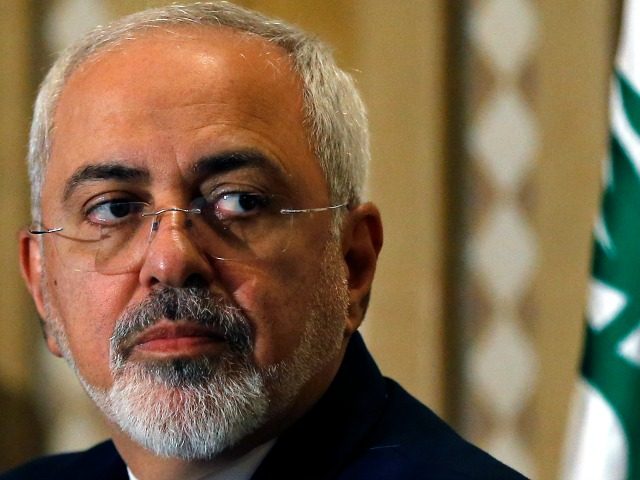Iranian Supreme Leader Ayatollah Ali Khamenei on Sunday gave a public scolding to Foreign Minister Mohammad Javad Zarif for disparaging the late Brig. Gen. Qassem Soleimani in an interview leaked to the media last week.
Khamenei said Soleimani was regarded as a “martyr” by the theocratic Iranian regime and Zarif made a “big mistake” by suggesting Soleimani caused discord within the Iranian government.
Last week, a U.K.-based Iranian news outlet published excerpts from an interview Zarif gave to a regime-controlled journalist this year. During the interview, which the regime says was never meant for public consumption, Zarif complained that the secular wing of Iranian government is constantly overridden by the theocracy and its military wing, the Islamic Revolutionary Guard Corps (IRGC).
One of Zarif’s complaints was that IRGC Gen. Soleimani frequently undermined the foreign minister’s diplomacy. Soleimani, whose Quds Force was in charge of organizing, directing, funding, and arming militia proxies and terrorist groups across the Middle East, was killed in Iraq by a U.S. airstrike in January 2020.
Iran’s state-run PressTV reported Khamenei “voiced regret and surprise” at Zarif’s leaked comments during a televised speech Sunday, essentially rebuking Zarif for playing into the hands of fiendish Westerners by suggesting the regime in Tehran is divided by ideological differences and bureaucratic turf wars.
“Americans have been angry with Iran’s influence for many years. They were angry with Martyr Soleimani for this reason, and this is why they martyred him,” Khamenei claimed. “We must not say something that would bring to mind the idea that we are repeating their remarks, both about the Quds Force and about Martyr Soleimani himself.”
In reality, Soleimani was eliminated because he organized attacks on U.S. positions in Iraq and the U.S. Embassy in Baghdad. An American non-military contractor was killed in one of those attacks.
“A country’s plans include military, scientific, cultural and diplomatic plans, and their totality makes up a country’s policy. It’s meaningless for one sector to negate the other and this is a major error, which must not be committed by the officials of the Islamic Republic,” the ayatollah said, sternly reminding Zarif that he and his ministry do not set Iran’s foreign policy, but are among the numerous officials and agencies entrusted with carrying out policies set by Iran’s rulers.
Khamenei said it was a “big mistake” for Zarif to suggest one part of Iran’s government “denies the other” or “contradicts” the will of the leadership.
“Some of these remarks are a repeat of hostile remarks of our enemies, repeating America’s rhetoric,” he said.
Khamenei stressed Soleimani’s revered status in Tehran’s political mythology, even going so far as to compare the slain terrorist mastermind with Imam Ali, the pivotal figure in Shia Islam. The anniversary of Ali’s murder in 661 A.D. is a national holiday in Iran, observed on May 4 this year. The comparison between Ali and Soleimani by Iran’s top religious official, so close to this holiday, was a rather pointed way of putting Zarif in his place, even though Khamenei refrained from calling Zarif out by name.
Zarif has apparently gotten the message because on Sunday he apologized for his leaked comments and begged forgiveness.
“I hope that the great people of Iran and all the lovers of the general, and especially the great family of Soleimani, will forgive me,” he said on Instagram.
“If I had known that a sentence of it would be made public, I certainly would not have mentioned it as before,” Zarif said of his remarks in the leaked audio.
On Sunday, after Khamenei’s televised scolding, Zarif said the Supreme Leader’s comments are “the final word and the endpoint for expert discussions.”
“I hope that with the help of God, me and my colleagues will be able to work with one mind and heart alongside other public servants for the perfect implementation of the supreme leader’s orders,” he said.
Zarif said he regretted that his “personal views” had been made public and used to harm Iran by “ill-wishers.”

COMMENTS
Please let us know if you're having issues with commenting.